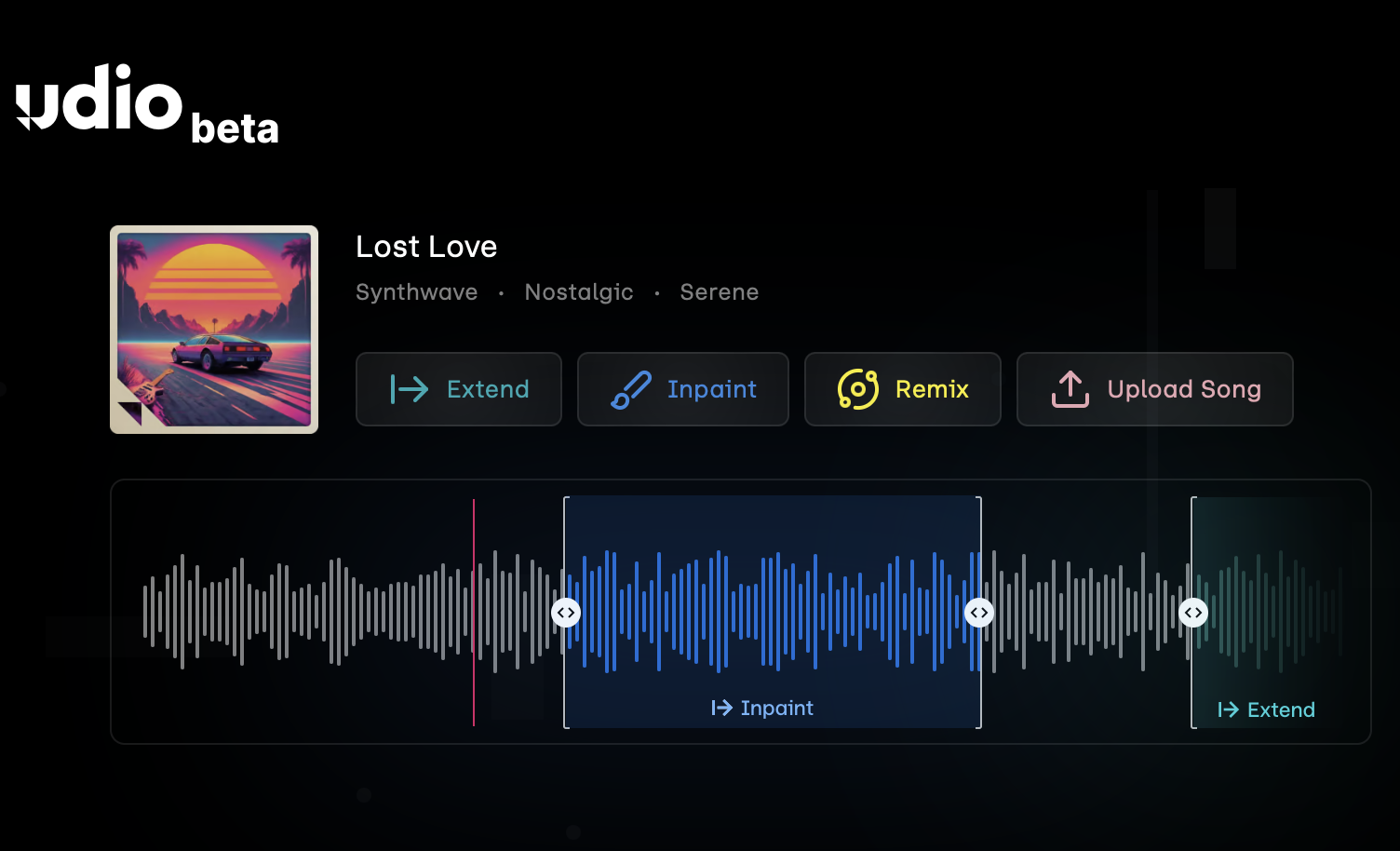Over the past two years, AI has emerged as a powerful tool for creative expression across various media—from text to images to film, and now music.
At Udio, our mission is to enable artists of all kinds to create exceptional music.
In our short journey as a company, we’ve collaborated with some of the world’s greatest musicians in their studios, workshopped lyrics with emerging songwriters, and witnessed millions of users creating remarkable new music, from the humorous to the deeply profound.
We’ve heard from a talented musician who, after losing the use of his hands, is now making music again. Producers have sampled AI-generated tracks to create hit songs like “BBL Drizzy,” while everyday music lovers have used our technology to express a full range of human emotions—from love to sorrow to joy.
With groundbreaking technologies come change and uncertainty. We’d like to offer some insights into how our technology works.
Generative AI models, including our music model, learn from examples. Much like students who listen to music and study scores, our model has “listened” to and learned from a vast collection of recorded music.
About Udio AI Cloud
The goal of training the model is to develop an understanding of musical concepts—the fundamental building blocks of musical expression that belong to no one. Our system is specifically designed to create music that reflects new musical ideas. We have no interest in replicating content from our training set, and we’ve implemented and continually refine state-of-the-art filters to ensure our model doesn’t reproduce copyrighted works or mimic artists’ voices.
We stand firmly behind our technology and believe that generative AI will become a cornerstone of modern society.
Almost every significant technological advancement in music has initially been met with apprehension but has ultimately benefited artists, record companies, music publishers, technologists, and the public. Synthesizers, drum machines, digital recording technology, and sound recording itself were once-controversial tools feared in their early days. Yet each of these innovations ultimately expanded music as an art form and as a business, giving rise to entirely new genres and generating billions of dollars for artists, songwriters, record labels, and music publishers.
Future of AI generated Music
We know that many musicians, especially the next generation, are eager to incorporate AI into their creative processes. In the near future, artists will compose music alongside their fans, amateur musicians will create entirely new genres, and talented creators—regardless of their resources—will reach new heights in the music industry.
The future of music will bring more creative expression than ever before. Let’s seize this pivotal moment in technology to broaden the circle of creators, empower artists, and celebrate human creativity.
Read other article in our Blog:

